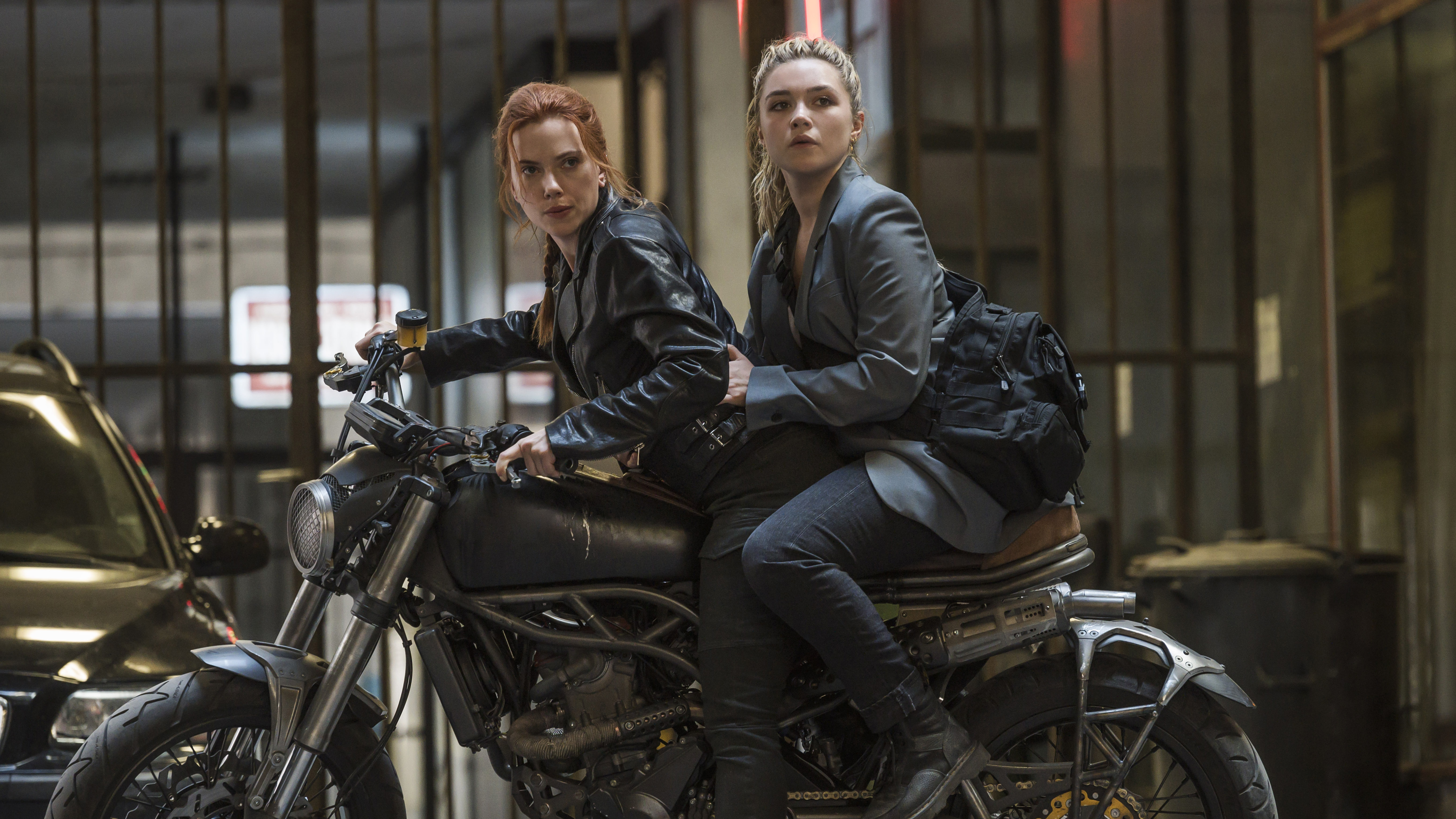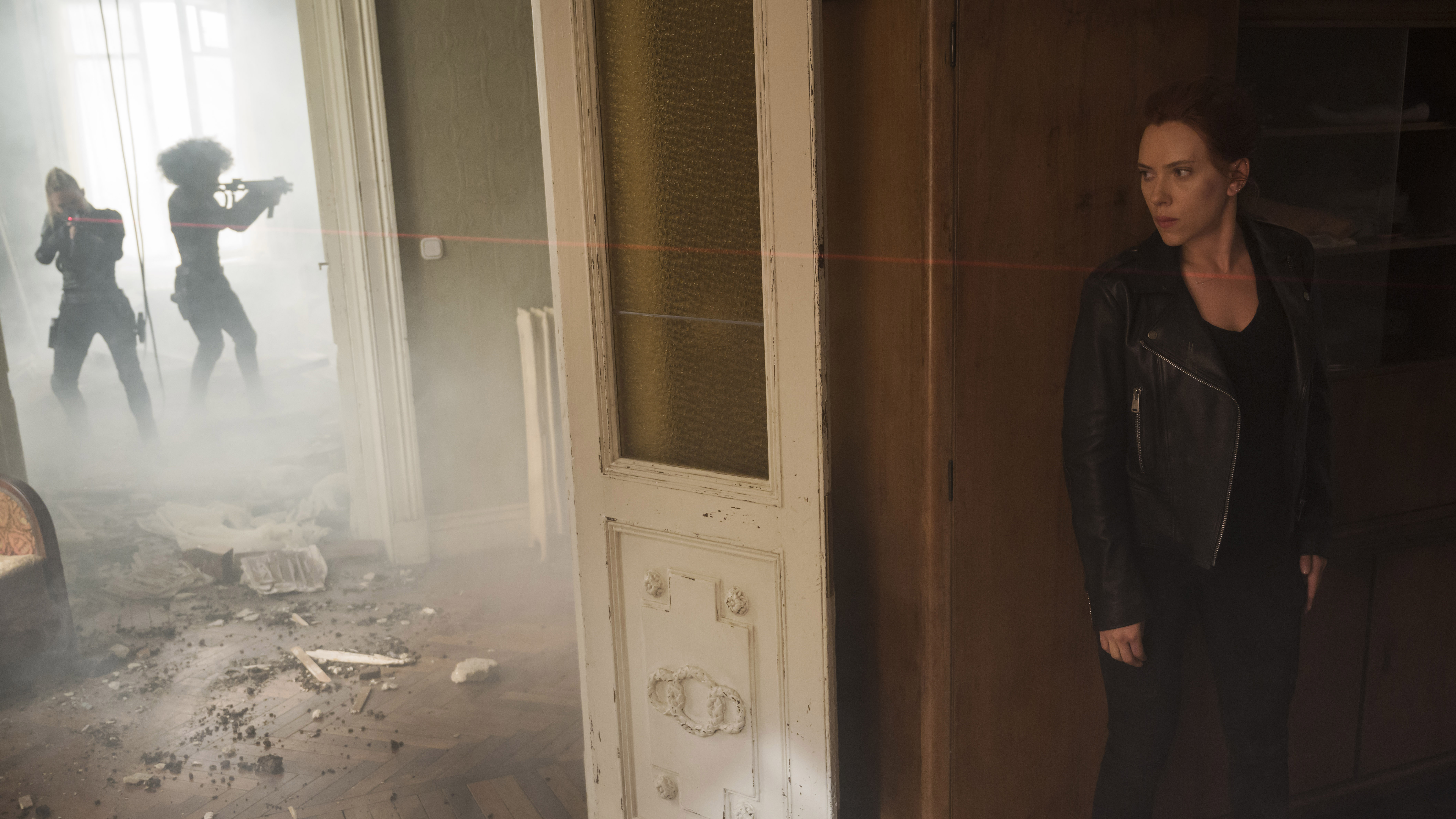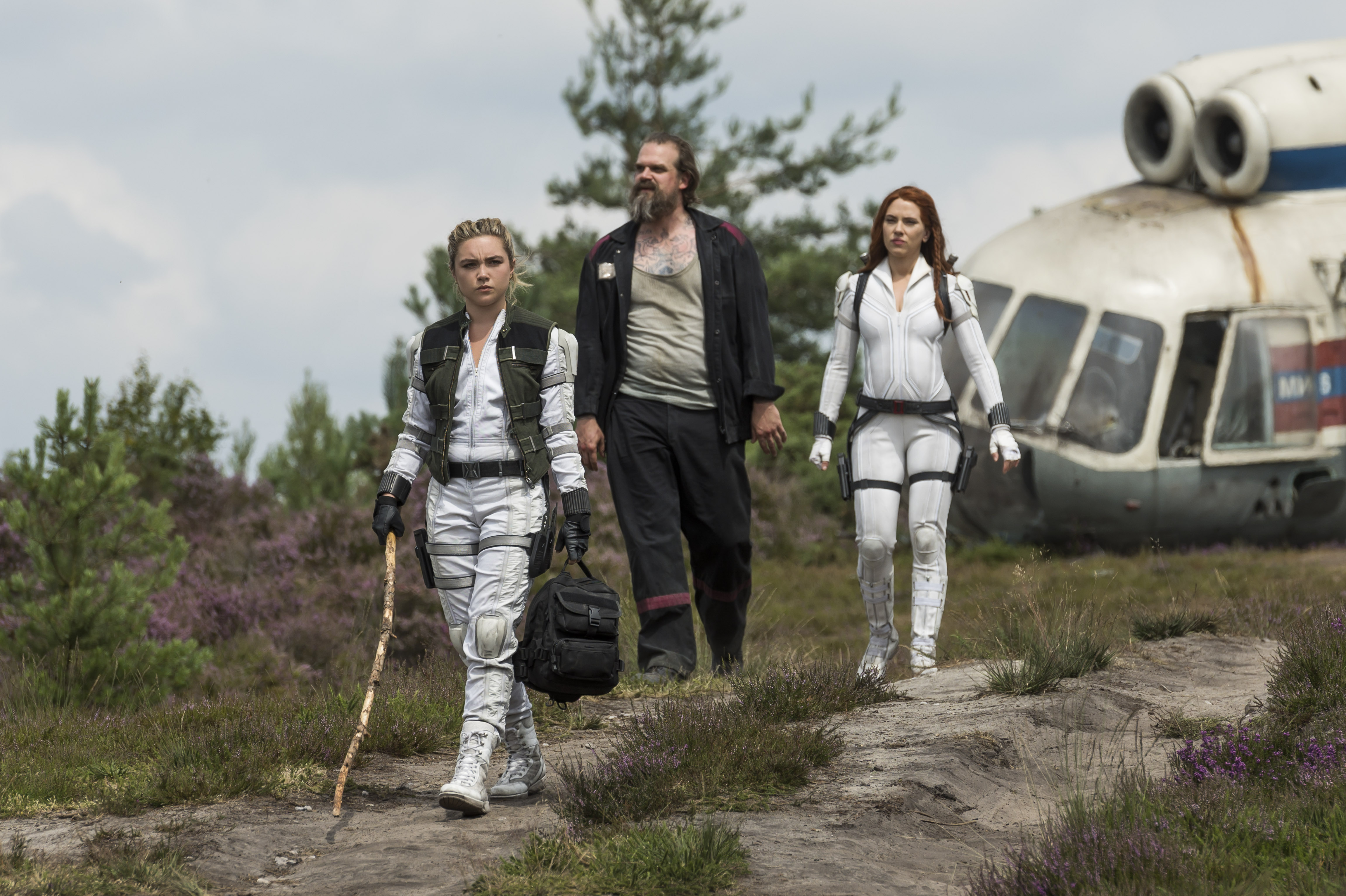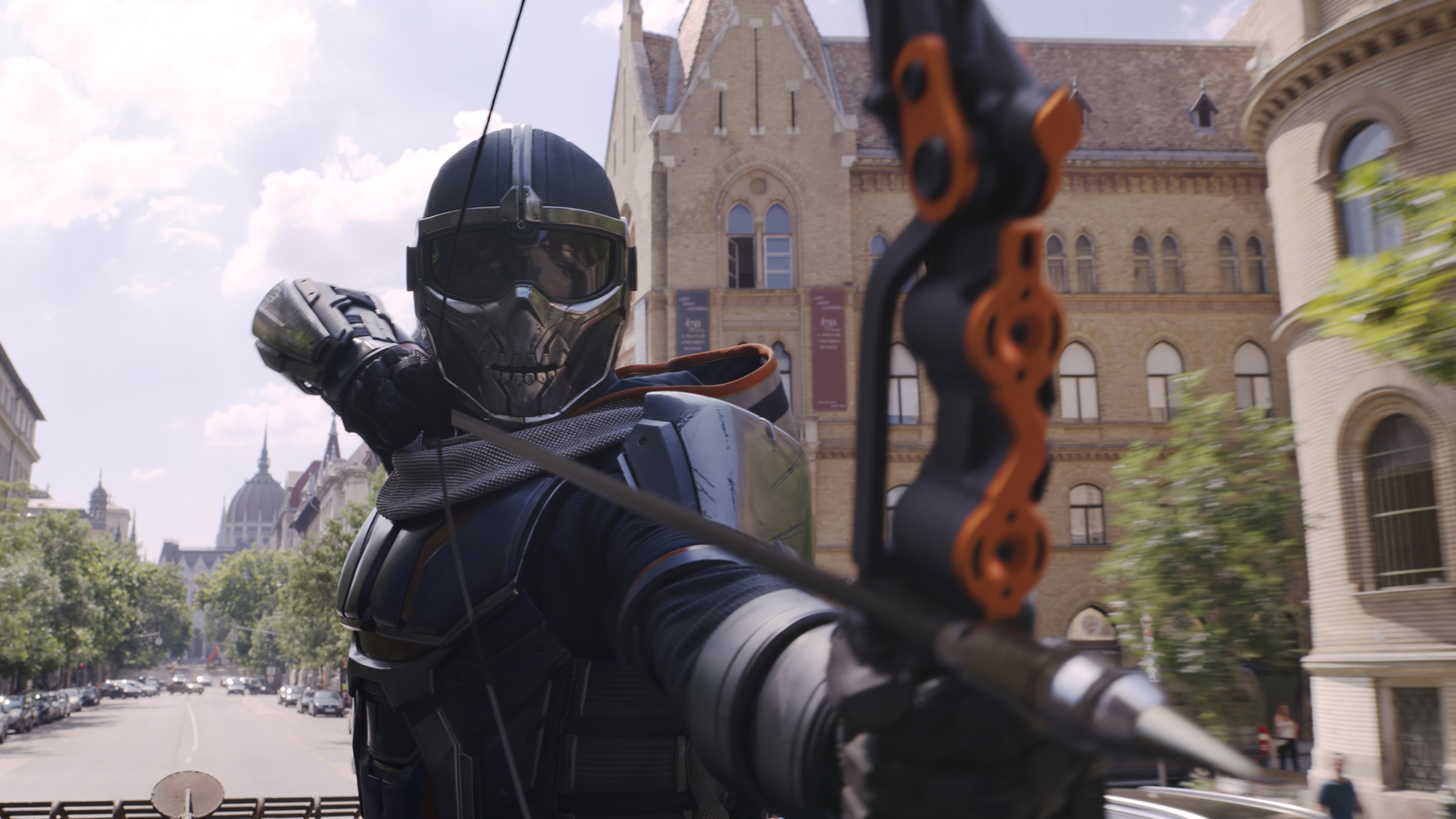
For many reasons, timing isn’t on the side of Black Widow. Numerous Covid-related production delays have kept the Scarlett Johansson-led origin story in limbo for over a year, where it has found itself the biggest victim of Disney’s tug of war between releasing its newest properties on streamers, in theaters, or both.
But the film also arrives amid a period of reinvention for the MCU, with a premise almost entirely at odds with the originality of TV adventures like Loki and Wandavision. This is the first movie in Marvel’s forward-looking Phase Four, and yet it's one that takes audiences all the way back to the fallout of 2016’s Captain America: Civil War.
On paper, that might seem a jarring move for the world’s foremost superhero studio to make, especially after the concrete sense of finality established by Avengers: Endgame. But in truth, Black Widow triumphs because it feels out of step. Cate Shortland’s grounded action movie is a refreshing break from exhausting multiverse theories, and a reminder that Marvel doesn't need to go to space or hop through time to tell an engaging story.
Something borrowed
One of Black Widow’s biggest wins is its almost seamless blending of genres.
It tells a fairly run-of-the-mill prequel tale – Natasha is forced to confront the as-yet unexplored demons of her past – but one that is still original enough within its overarching superhero genre to feel fresh. We haven’t seen this sort of slow-burning (and at times dark) espionage action in the MCU since 2014’s Captain America: The Winter Soldier, and while the movie doesn’t go anywhere other spy thrillers haven’t gone before, it’s able to distinguish itself by occasionally leveraging Marvel’s trademark, goofy charm to great effect.

Black Widow is a serious action movie fronted by a comic book superhero, and so has the freedom to cherry pick the best elements of its inspirations. Broadly speaking, it becomes increasingly Marvel-like as the plot moves through its three acts, but its opening hour bears more than a few hallmarks of a Jason Bourne or Bond thriller.
Seriously, at times, it wouldn’t be a surprise to see Matt Damon or Tom Cruise stand in for Johansson as she navigates high-speed car chases and on-foot pursuits through metro networks. It helps, too, that Mission: Impossible composer Lorne Balfe is on hand with a score that feels decidedly less Avengers-y and more, well, Mission: Impossible – which complements Black Widow’s change in tone.
Get daily insight, inspiration and deals in your inbox
Sign up for breaking news, reviews, opinion, top tech deals, and more.
Then there’s the gritty apartment fights, earpiece-assisted prison escapes, unglamorous globe-trotting between Budapest, Morocco and Cuba and an opening title sequence similar to Natasha’s flashback scene in Avengers: Age of Ultron – which itself is an early indicator of the film’s surprising thematic darkness.

The point being, this is a side to Marvel we haven’t seen for a long time. It’s nice to see our heroes as the pursued rather than the pursuers, beholden to the laws of gravity and engaging in actual hand-to-hand combat. We’re treated to a potent mix of thoughtful dialogue and relentlessly high-octane action sequences, without the CGI-fueled, laser-shooting chaos of recent MCU experiences.
A family affair
Unsurprisingly, Johansson is as good as the butt-kicking Natasha as she’s ever been – but it’s the movie’s ensemble cast that really make Black Widow as watchable as it is.
As Natasha’s stand-in Soviet spy parents, Alexei and Melina, David Harbour and Rachel Weisz are excellent. The pair bounce off one another with all the natural chemistry of a genuine married couple, and Harbour, in particular, offers some great comic relief against Johansson’s steely Natasha.
His Alexei – who doubles as the once-impressive Soviet supersoldier, The Red Guardian – is also one of the few vehicles through which the movie references other MCU heroes, given his character’s deep-rooted hatred-cum-admiration for Captain America. But that’s about all the inter-universe nods we get – save for a customary post-credits scene – which makes for a refreshingly standalone adventure.

Florence Pugh, though, is Black Widow’s ace in the hole. As Yelena, she not only provides Natasha with the sounding board to explore the darker elements of her past, but serves as a fascinating character study in her own right. She matches her Avengers counterpart for fighting skill and trumps her for humor, cracking the best of the movie’s jokes and throwing its coolest punches.
It’s as if Pugh has been in this universe for years, and it wouldn’t be a surprise to see her return for future adventures (she's rumored to turn up in this year's Hawkeye show on Disney Plus). Hell, give Yelena her own show – she’s really that good a character.
Artistic license
Still, as with most Marvel movies, Black Widow isn’t without its faults. It takes a few Hulk-sized creative liberties with some of its stunts, and contains the usual helping of “how did they get there?” moments you expect to find in most espionage thrillers. Its villains, too, are insipid, altogether lacking in the menace that made previous franchise baddies like Thanos or The Winter Soldier so effective. Ray Winstone is neither threatening nor convincingly Russian as the evil puppeteer Dreykov, while the Arkham Knight-like Taskmaster is far too G.I. Joe to be taken seriously.

But it’s a testament to Black Widow’s effectiveness elsewhere that none of that really matters. This is a movie about putting a fan-favorite character front and centre, giving Johansson’s Natasha the room to dig into her past and fans the chance to enjoy a story that isn’t preoccupied with building for the future.
After years spent teaming up with Norse gods and armoured billionaires, Black Widow is the accomplished self-contained adventure its titular heroine deserves – a bona fide spy thriller that switches up the recent Marvel formula in refreshing ways. Johansson won’t be returning as Nat, but Cate Shortland has helmed a fitting end to her decade-long stint in the MCU.
Black Widow is due to be released in theatres on July 9, 2021, and will also be available to stream via Disney Plus Premier Access.
- Everything we know about The Suicide Squad

Axel is TechRadar's UK-based Phones Editor, reporting on everything from the latest Apple developments to newest AI breakthroughs as part of the site's Mobile Computing vertical. Having previously written for publications including Esquire and FourFourTwo, Axel is well-versed in the applications of technology beyond the desktop, and his coverage extends from general reporting and analysis to in-depth interviews and opinion. Axel studied for a degree in English Literature at the University of Warwick before joining TechRadar in 2020, where he then earned an NCTJ qualification as part of the company’s inaugural digital training scheme.